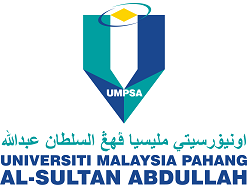Students Experience Using Learning Factory at the Faculty of Industrial Management
DOI:
https://doi.org/10.15282/jgi.6.2.2023.9652Keywords:
Learning Factory, Knowledge Transfer, Lean Manufacturing, TVETAbstract
One of the issues faced by the industry internationally is a lack of skilled workers to meet growing industrial demands. To satisfy the demanding requirements of the manufacturing industry in such a scenario, both the educational content and didactical methodologies need to be enhanced. However, the university and other higher education institutions do not currently use training and teaching strategies that prepare students for employment in the industrial sector. The learning factory concept can be introduced to the institution to resolve this problem. The learning factory technique mixes business activities with the educational process. This study evaluates the student’s perception in using the learning factory concepts at the Universiti Malaysia Pahang, a Malaysian public university located in Pahang, Malaysia. A qualitative research method was employed, and data was collected by interviewing six undergraduate students who had used the learning factory for their lean manufacturing subject. The interview took place at the end of the semester using a structured, open-ended interviewing questions technique. According to the study, the learning factory has four primary advantages which are increase students' interest in TVET topics, boost their level of soft skills, increase their comprehension, and offer tools to help them retain knowledge. The findings of this study can be used to provide new suggestions for lecturers, instructors, or higher education institution administration on how to make teaching students simpler and more engaging using learning factory concept. Future research should study the relationship between learning factory infrastructure, instructional approaches, with student performance.
References
Abele, E. (2019). Learning Factories. Springer International Publishing, Cham.
Abele. E., Matternich, J., Tisch, M., Chryssolouris, G. (2015). Learning factories for research, education, and training. Procedia CIRP, vol. 32, no. Clf, pp. 1–6, doi: 10.1016/j.procir.2015.02.187.
Abele. E., Chryssolouris, G., Sihn, W., Metternich, J., ElMaraghy, H., Seliger, G., Sivard, G., ElMaraghy, W., Hummel, V., Tisch, M., Seifermann, S. (2017). Manufacturing Technology Learning Factories for Future-oriented Research and Education in Manufacturing. CIRP Annals. - Manufacturing Technology, vol. 66, no. 2, pp. 803–826, doi: 10.1016/j.cirp.2017.05.005.
Baena, F., Guarin, A., Mora, J., Sauza, J., Retat, S. (2017). Learning factory: The path to industry 4.0. Procedia Manufacturing., vol. 9, pp. 73–80, doi: 10.1016/j.promfg.2017.04.022.
Cachay, J., Wennemer, J., Abele, E. and Tenberg, R. (2012). Study on Action-Oriented Learning with a Learning Factory Approach. Procedia - Social Behavioral Sciences, vol. 55, pp. 1144–1153, doi: 10.1016/j.sbspro.2012.09.608.
Centea, D., Singh, I., Wanyama, T., Magolon, M., Boer, J., Elbestawi, M. (2020). Using the SEPT Learning Factory for The Implementation of Industry 4.0: Case of SMEs. Procedia Manufacturing, vol. 45, no. 2019, pp. 102–107, doi: 10.1016/j.promfg.2020.04.079.
Darun, M. R., Al Adresi, A.S., Ali, J., Maarof, M.G. (2020). Integrating Blockchain Technology For Air Purifier Production System At FIM Learning Factory. International of Journal Control Automation, vol. 13, no. 2, pp. 1112–1117, [Online]. Available: https://www.researchgate.net/publication/342764158.
Khalid, N., Abd Hamid, N., Sailin, R. (2014). Importance Of Soft Skills For Industrial Training Program : Employers’ Perspective. Asian Journal of Social Sciences Humanities, vol. 3, no. 4, pp. 10–18.
Lindvig, K. and Mathiasen, H. (2020). Translating The Learning Factory Model To A Danish Vocational Education Setting. Procedia Manufacturing., vol. 45, no. 2019, pp. 90–95, doi: 10.1016/j.promfg.2020.04.077.
Maarof, M.G., Nawanir, G.,Yusuf, M.F. (2020), “Learning Factory Concept And Developmentat Faculty Of Industrial Management, Universiti Malaysia Pahang
Conference.Kuis.Edu.My, vol. 2020, no. ICoMM, pp. 2756–8938, [Online]. Available: http://conference.kuis.edu.my/icomm/7th/images/eprosiding/19_MOHD_GHAZALI.pdf.
Ma’dan, M., Ismail, M. T. & Daud, S. (2019). Importance Of Human Capital Development And Competitiveness In Enhancing Competency Level Among Malaysia University Graduates: Literature Review. Journal of Social Sciences Humanities., vol. 16, no. 8, pp. 1–15.
Mateo, J. and Yagüe-Fabra, J.A. (2021). Public-Private Collaboration Learning Factory Project for Soft Skills Training in Engineering, Vocational Education and Training and Executive Programs. SSRN Electron. Journal, doi: 10.2139/ssrn.3863151.
Mat Jam, N.A. and Puteh, S. (2020). Developing A Conceptual Framework of Teaching Towards Education 4 . 0 in TVET Institutions. International Conference of Business Studies Education, no. November, pp. 74–86.
Mavrikios, D., Georgoulias. K, Chryssolouris, G. (2019). The Teaching Factory Network: A New Collaborative Paradigm For Manufacturing Education. Procedia Manufacturing, vol. 31, pp. 398–403, doi: 10.1016/j.promfg.2019.03.062.
Metternich, J. (2021). Evaluation Of Factory Elements For The Configuration of Learning Factories. SSRN Electron. Journal, doi: 10.2139/ssrn.3857893.
Nadarajah, J. (2021). Measuring the gap in employability skills among Malaysian graduates,” International Journal Modern Trends Social Sciences, vol. 4, no. 15, pp. 81–87, doi: 10.35631/IJMTSS.415007.
Nazron, M., Lim, B. and Nga, J. L.H. (2017) Soft Skills Attributes and Graduate Employability: A Case in Universiti Malaysia Sabah Muhammad Ariff Nazron,” Malaysian Journal of Business Economics, vol. 4, no. 2, pp. 65–76,
Schallock, B., Rybski, C., Jochem, R., Kohl, H. (2018). Learning Factory for Industry 4.0 to provide future skills beyond technical training,” Procedia Manuf., vol. 23, no. 2017, pp. 27–32, doi: 10.1016/j.promfg.2018.03.156.
Skritsovali, K. (2023). Learning Through Playing : Appreciating The Role Of Gamification In Business Management Education During And After The COVID-19 Pandemic. Journal of Management Development, vol. 42, no. 5, pp. 388–398, doi: 10.1108/JMD-04-2023-0124.
Syamsudin, R. N., Sukardi, & Shiyu, H. (2018). Vocational High School Teachers’ Efforts in Equipping Graduates with Soft Skills Based on Work Demands. Jurnal Pendidikan Teknologi Dan Kejuruteraan, 24(2), 303–309. https://doi.org/10.21831/jptk.v24i2.19956
Zuber-Skerritt, O. (2002). The Concept Of Action Learning. The Learning Organization, vol. 9, no. 3, pp. 114–124, doi: 10.1108/09696470210428831.
Downloads
Published
Issue
Section
License
Copyright (c) 2023 Universiti Malaysia Pahang Publishing

This work is licensed under a Creative Commons Attribution-NonCommercial 4.0 International License.



